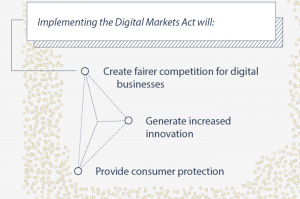Achieve Sustainable Digital Transformation by investing in Futuristic Data Centres
Imagine a world where organizations can meet their sustainability goals while keeping up with technological advancements. Let’s explore how companies can achieve sustainable digital transformation by making strategic investments in their data centers and revolutionizing their operations, processes, and customer experiences. Achieving sustainable digital transformation through investments in data centers involves adopting practices that prioritize efficiency, environmental responsibility, and long-term viability. This holistic approach allows businesses to not only reduce their carbon footprint but also create long-term value for themselves and society.
Here are several strategies that companies can consider:
Energy Efficiency: Implementing energy-efficient technologies and practices within data centers is crucial. This includes using advanced cooling systems, optimizing server utilization, and investing in energy-efficient hardware. Companies can also explore renewable energy sources, such as solar or wind power, to reduce their carbon footprint. Sustainable digital transformation brings about cost savings in the long run. By optimizing energy consumption & reducing waste companies can lower their operational costs while maximizing productivity.
Virtualization and Consolidation: Virtualization allows multiple virtual servers to run on a single physical server, leading to better resource utilization. This not only reduces the number of physical servers needed but also contributes to energy savings and a smaller physical footprint.
Data Center Design: Companies can design new data centers or retrofit existing ones with sustainability in mind. This involves using materials and designs that enhance energy efficiency, such as efficient airflow management, modular designs, and the use of natural cooling where possible.
Cloud Computing and Hybrid Solutions: Leveraging cloud services or adopting a hybrid approach (a combination of on-premises and cloud infrastructure) can contribute to sustainability. Cloud providers often invest heavily in energy-efficient data centers and offer scalable solutions, allowing companies to adjust resources based on demand, and reducing unnecessary energy consumption.
Lifecycle Management: Proper management of IT equipment throughout its lifecycle is essential. This includes responsible disposal or recycling of outdated hardware, as well as regular maintenance and upgrades to ensure optimal performance and efficiency.
Monitoring and Optimization: Implementing advanced monitoring tools helps in tracking energy usage, server performance, and overall efficiency. This data can be used to identify areas for improvement and optimize resource allocation.
Automation: Implementing automation in data center operations can enhance efficiency by dynamically adjusting resources based on demand. Automated systems can optimize energy usage and resource allocation more effectively than manual processes.
Employee Training and Awareness: Educating employees on sustainable practices and the importance of energy efficiency can foster a culture of responsibility within the organization. This includes training on best practices for using IT resources, such as shutting down non-essential servers during periods of low demand.
Regulatory Compliance: Staying informed about and compliant with environmental regulations related to data centers is crucial. Companies should be aware of local and global standards and work to exceed minimum requirements where possible.
Collaboration and Industry Involvement: Engaging with industry organizations, sharing best practices, and collaborating with peers can lead to the development of new, sustainable solutions. Participating in initiatives focused on green IT and sustainable business practices can contribute to positive industry change.
Achieving sustainable digital transformation holds immense importance for companies today. It enables organizations to align with global environmental goals and regulations. As governments worldwide are implementing stricter environmental regulations, businesses must adapt their operations accordingly to remain compliant and avoid penalties. By incorporating the above-listed strategies, companies can not only achieve sustainable digital transformation but also position themselves as responsible corporate citizens committed to environmental stewardship.

